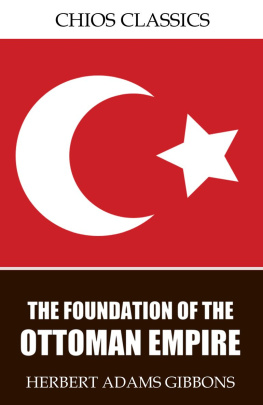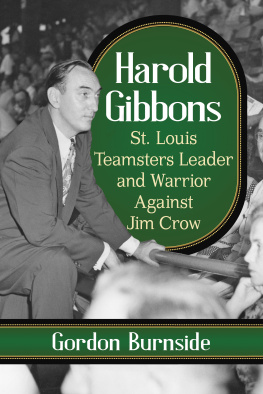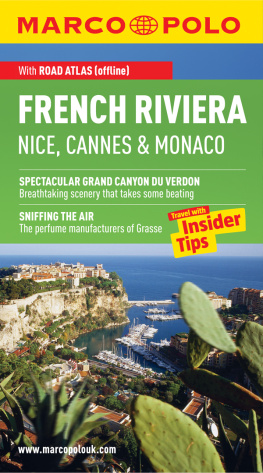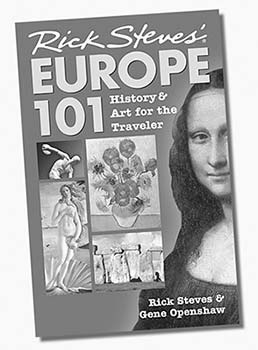ILLUSTRATIONS
"The Old Town takes you far from the psychology of cosmopolitanism
and the philosophy of hedonism."
"La Napoule, above whose tower on the sea rose a hill crowned
with the ruins of a chapel. Behind were the Maritime Alps."
RIVIERA TOWNS
CHAPTER I
GRASSE
For several months I had been seeing Grasse every day. The atmosphere of the Midi is so clear that a city fifteen miles away seems right at hand. You can almost count the windows in the houses. Against the rising background of buildings every tower stands out, and you distinguish one roof from another. From my study window at Thoule, Grasse was as constant a temptation as the two islands in the Bay of Cannes. But the things at hand are the things that one is least liable to do. They are reserved for "some day" because they can be done "any day." Since first coming to Thoule, I had been a week's journey south of Cairo into the Sudan, and to Verdun in an opposite corner of France. Menton and St. Raphal, the ends of the Riviera, had been visited. Grasse, two hours away, remained unexplored.
I owe to the Artist the pleasure of becoming acquainted with Grasse. One day a telegram from Bordeaux stated that he had just landed, and was taking the train for Thoule. The next evening he arrived. I gave him my study for a bedroom. The following morning he looked out of the window, and asked, "What is that town up there behind Cannes, the big one right under the mountains?"
"Grasse, the home of perfumes," I answered.
"I don't care what it's the home of," was his characteristic response. "Is it old and all right?" ("All right" to the Artist means "full of subjects.")
"I have never been there," I confessed.
The Artist was fresh from New York. "We'll go this morning," he announced.
From sea to mountains, the valley between the Corniche de l'Estrel and Nice produces every kind of vegetation known to the Mediterranean littoral. Memories of Spain, Algeria, Egypt, Palestine, Asia Minor, Greece and Italy are constantly before you. But there is a difference. The familiar trees and bushes and flowers of the Orient do not spring here from bare earth. Even where cultivated land, wrested from the mountain sides, is laboriously terraced, stones do not predominate. Earth and rock are hidden by a thick undergrowth of grass and creepers that defies the sun, and draws from the nearby mountain snow a perennial supply of water. Olive and plane, almond and walnut, orange and lemon, cedar and cork, palm and umbrella-pine, grape-vine and flower-bush have not the monopoly of green. It is the Orient without the brown, the Occident with the sun.
The Mediterranean is more blue than elsewhere because firs and cedars and pines are not too green. The cliffs are more red than elsewhere because there is no prevailing tone of bare, baked earth to modify them into brown and gray. On the Riviera one does not have to give up the rich green of northern landscapes to enjoy the alternative of brilliant sunshine.
As we rode inland toward Grasse, the effect of green underground and background upon Oriental foliage was shown in the olives, dominant tree of the valley and hillsides. It was the old familiar olive of Africa and Asia and the three European peninsulas, just as gnarled, just as gray-green in the sun, just as silvery in the wind. But its colors did not impress themselves upon the landscape. Here the olive was not master of all that lives and grows in its neighborhood. In a landscape where green replaces brown and gray pink, the olive is not supreme. Its own foliage is invaded: for frequently rose ramblers get up into its branches, and shoot out vivid flashes of crimson and scarlet. There is also the yellow of the mimosa, and the inimitable red of the occasional judas-tree. Orange trees blossom white. Lilacs and wisteria give the shades between red and blue. As if in rebellion against too much green, the rose-bushes put forth leaves of russet-brown. It is a half-hearted protest, however, for Grasse rose-bushes are sparing of leaves. Carefully cultivated for the purpose of bearing to the maximum, every shoot holds clusters beyond what would be the breaking-point were there not artificial support. Nature's yield is limited only by man's knowledge, skill and energy.
As we mounted steadily the valley, we had the impression that there was nothing ahead of us but olives. First the perfume of oranges and flowers would reach us. Then the glory of the roses would burst upon us, and we looked up from them to the flowering orange trees. Wherever there was a stretch of meadow, violets and daisies and buttercups ran through the grass. Plowed land was sprinkled with mustard and poppies. The olive had been like a curtain. When it lifted as we drew near, we forgot that there were olives at all!
The Artist developed at length his favorite theory that the richest colors, the sweetest scents were those of blossoms that bloomed for pure joy. The most delicate flavors were those of fruits and berries that grew without restraint or guidance. "Nature is at her best," he explained, "when you do not try to exploit her. Compare wild strawberries and wild asparagus with the truck the farmers give you. Is wisteria useful? What equals the color of the judas-tree in bloom? Do fruit blossoms, utilitarian embryo, compare for a minute with real flowers? Just look at all these flowers, born for the sole purpose of expressing themselves!" All the while we were sniffing orange-blossoms. I tried in vain to get his honest opinion on horse-chestnut blossoms as compared with apples and peaches and apricots. I called his attention to the fact that the ailanthus lives only to express itself, while the maple gives sugar. But you can never argue with the Artist when he is on the theme of beauty for beauty's sake.
From the fairyland of the valley we came suddenly upon the Grasse railway station, from which a funiculaire ascends to the city far above. Thankful for our carriage, we continued to mount by a road that had to curve sharply at every hundred yards. We passed between villas with pergolas of ramblers and wisteria until we found ourselves in the upper part of the city without having gone through the city at all.








